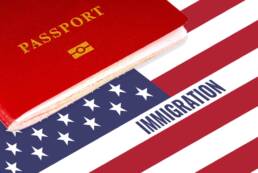U.S. embassies around the world are implementing a more intensive vetting procedure for certain visa applicants. In the form of a three-page supplemental questionnaire, this temporary emergency measure is being rolled out in response to President Trump’s March 6th executive order which called for more rigorous vetting of all visa applicants. The new procedure was approved by the Office of Management and Budget on May 23 and came into effect on May 25th.
Consular officers will now have discretionary authority in determining whether individuals warrant a more detailed evaluation. If subject to this additional scrutiny, a person will be provided with a three-page questionnaire which asks applicants for their passport number and travel history over the past 15 years. It also asks for information about the source of funding for any trips the individual has taken, 15 years of employment history, residential address, and the names of all spouses or partners, whether living or deceased. This information is generally already requested, but it does not date back so far in time. Responding to the questionnaire is actually voluntary and “not necessarily” a rationale for visa denial, but applicants are warned that not providing answers could cause a delay in processing.
One question in particular has become very controversial. Applicants will now be asked to provide their user names on all social media accounts that they have used in the last five years. The American Civil Liberties Union has spoken publicly on this issue, calling it an intrusion “on the privacy and freedom of speech for applicants, for any U.S. citizens with whom they are in contact.” Regardless, the questionnaire will not be given to every foreign visitor or visa applicant. The State Department estimates that only about 65,000 of the 13 million visa applicants every year could be subjected to this increased vetting.
The rationale behind this new procedure is national security. The President made it clear during his campaign that he intended to make these changes. He called for “extreme vetting” of foreigners seeking entry into the United States. This is an effort by the White House to block potential terrorists and other national security threats from entering the country. The questionnaire is intended for individuals that merit additional scrutiny, and the questions are tailored to identify applicants who have spent time in areas controlled by terrorist groups such as ISIS or al-Qaeda.
If you are interested in applying for an immigrant or nonimmigrant visa, please contact our office to speak to one of our knowledgeable attorneys today!
Ready to have Berardi on your side?
Whether you’re a business looking to hire or a professional hoping to relocate, immigration law can be complicated. But you don’t have to do it alone. Put our experience to work for you.


